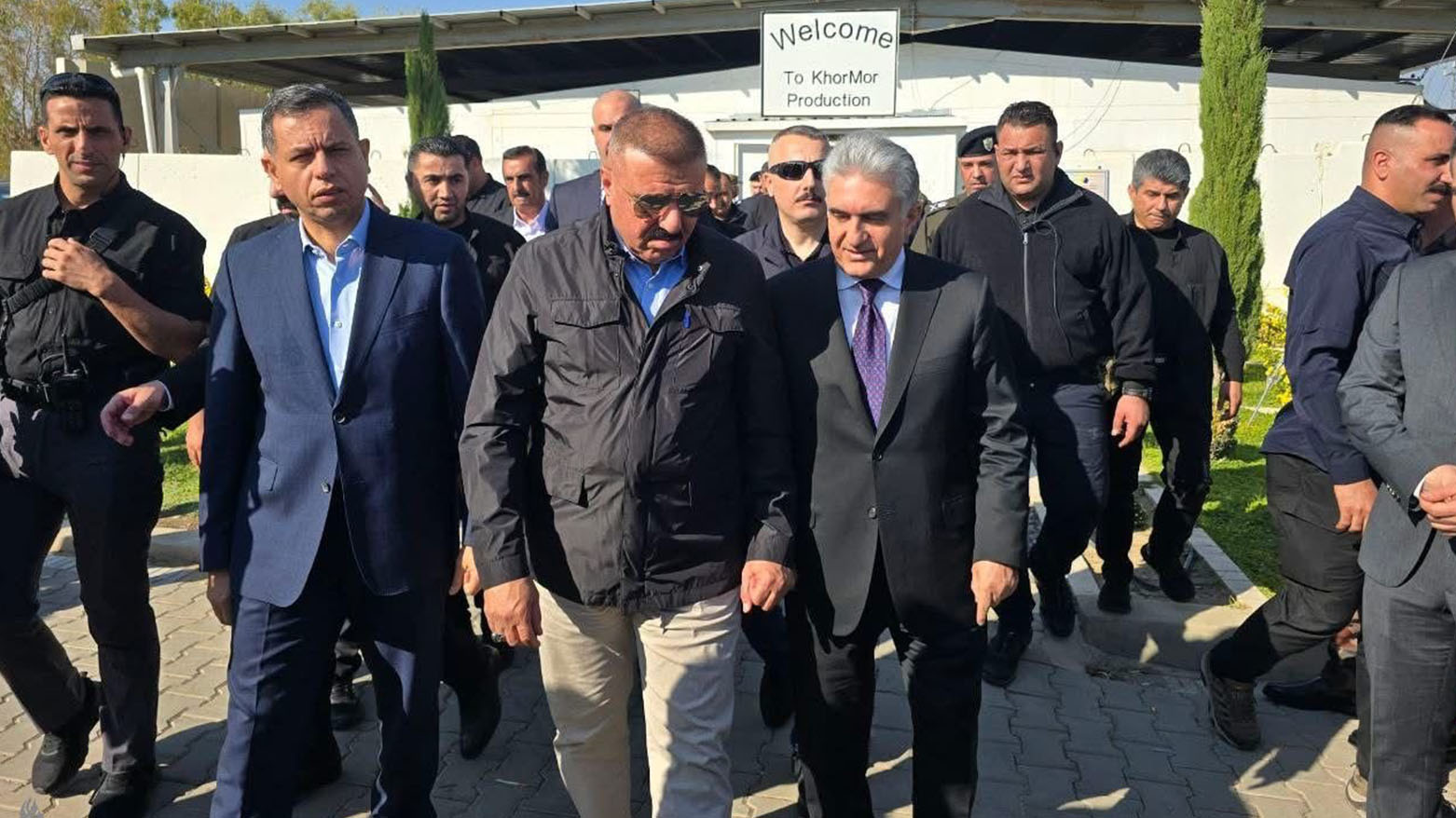KRG, Federal Interior Ministers Launch Joint Investigation at Khor Mor Gas Field
KRG and Iraqi Interior Ministers met at Khor Mor to investigate the drone attack, with Iraqi PM Sudani ordering a pursuit of culprits backed by the coalition.

ERBIL (Kurdistan24) – In a response to the destabilizing drone strike on the Khor Mor gas field, a high-level security delegation comprising the top interior officials from both the Kurdistan Regional Government (KRG) and the federal government of Iraq convened directly at the site of the incident on Friday. This field meeting marks the commencement of an urgent, joint investigation aimed at hunting down the perpetrators behind an assault that leadership in both Erbil and Baghdad have characterized as a direct threat to national stability.
Following the attack, a high-level security and political movement has begun between the federal and regional governments, culminating in the Prime Minister of Iraq ordering the pursuit of the perpetrators with the support of the international coalition.
According to confirmed information, the field meeting on Friday began inside the perimeter of the Khor Mor facility. The high-ranking delegation included Reber Ahmed, the Interior Minister of the Kurdistan Region, and Abdul-Amir al-Shammari, the Iraqi Interior Minister, joined by the head of the Iraqi National Intelligence Service.
The primary and immediate goal of this field visit and meeting is to thoroughly investigate the mechanics of the attack on the gas field and to identify the attackers responsible for threatening the region's energy lifeline.
This unified security step follows high-level political coordination that took place on Thursday, November 27, 2025.
Mohammed Shia al-Sudani, the Prime Minister of Iraq, engaged in a critical phone call with Masrour Barzani, the Prime Minister of the Kurdistan Regional Government.
During the conversation, Sudani strongly condemned the attack, announcing that the strike is considered an "aggression against all of Iraq," signifying that the threat is not limited to the Kurdistan Region alone. In that call, both leaders agreed on the formation of a joint rapid committee tasked specifically with finding and punishing the criminals involved.
Further details on the mechanics of the investigation were provided by Sabah al-Numan, the spokesperson for the Commander-in-Chief of the Iraqi Armed Forces. He revealed that Prime Minister Sudani had previously chaired an emergency security meeting attended by the ministers of defense and interior, as well as the heads of the security agencies.
It was during this meeting that the decision was made to form the high-level investigation committee currently active on the ground, headed by the Iraqi Interior Minister and featuring the membership of the Regional Interior Minister and the head of the National Intelligence Service.
A key component of this decision is that the committee will carry out its work with the technical support of the international coalition and the joint operations command, ensuring advanced capabilities are utilized in the manhunt.
The spokesperson for the Commander-in-Chief also contextualized the attack within the broader political landscape, pointing out that at a time when Iraq is taking concrete steps towards stability and regaining its regional role, terrorist groups are attempting to disrupt that situation by targeting energy infrastructure.
Al-Numan also stressed that the committee will announce the final results within the next three days.
Sabah al-Numan highlighted that the investigation committee has made a field visit to the Khor Mor field for the purpose of delving into the details and causes of the incident and has begun collecting evidence.
According to Numan, the committee's work is proceeding very intensively and they have immediately started the procedures, so it is expected that within the next 72 hours the final results of the investigations will be ready and will be revealed to the public opinion and the relevant parties.
The Khor Mor gas field, located in the town of Qadir Karam in the Chamchamal district, is one of the most important energy facilities in the Kurdistan Region and Iraq. As the main source of natural gas supply for power stations, producing about 500 million cubic feet of gas daily, its security is paramount to the nation's infrastructure.